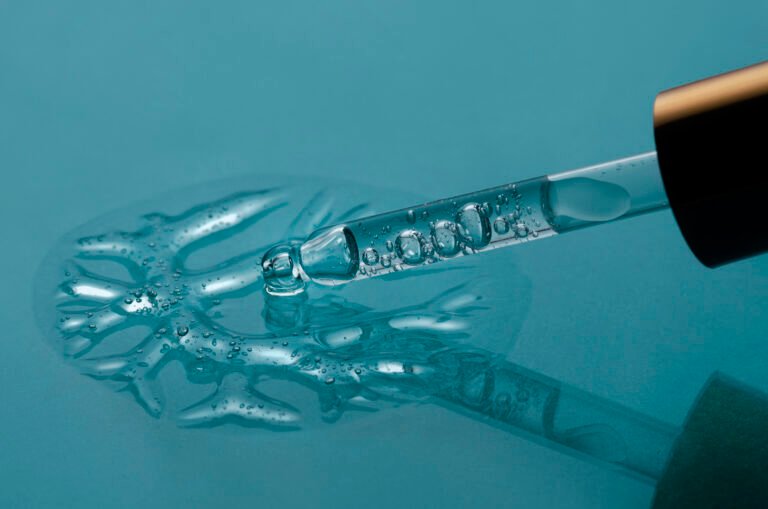Research peptides have revolutionized scientific investigation across multiple disciplines, from regenerative medicine to neuroscience. These powerful biomolecules offer laboratories unprecedented opportunities to explore cellular mechanisms, therapeutic pathways, and biological processes. Whether you’re establishing a new research programme or expanding existing studies, understanding how to buy peptides for research is essential for achieving reliable, reproducible results.
For laboratories seeking high-quality research compounds, selecting the right supplier makes all the difference. This comprehensive guide covers everything researchers need to know about sourcing, evaluating, and purchasing peptides that meet rigorous scientific standards.
What are research peptides?
Research peptides are chains of amino acids specifically synthesised for laboratory investigation and scientific study. These molecules, typically containing 2-50 amino acids, serve as essential tools for understanding biological processes at the cellular and molecular level.
Unlike therapeutic peptides approved for clinical use, research peptides are manufactured exclusively for in vitro studies and experimental applications. They enable scientists to investigate protein interactions, cellular signalling pathways, and potential therapeutic targets without the regulatory constraints associated with clinical compounds.
Most research peptides fall into several categories: growth hormone-releasing peptides (such as CJC-1295 and Ipamorelin), healing peptides (like BPC-157 and TB-500), and metabolic peptides (including GLP-1 analogues). Each category offers unique research applications, from studying growth hormone regulation to investigating tissue repair mechanisms.
The synthesis of research peptides employs sophisticated techniques, including solid-phase peptide synthesis (SPPS) and liquid-phase methods. These processes ensure precise amino acid sequences whilst maintaining the structural integrity necessary for reliable experimental outcomes.
Benefits for labs
Research peptides provide laboratories with numerous advantages that enhance both the quality and scope of scientific investigation.
Precision and reproducibility stand as primary benefits. Unlike crude biological extracts, synthetic peptides offer consistent composition and purity levels, typically exceeding 95%. This reliability ensures that experimental results can be reproduced across different research teams and periods.
Cost-effectiveness represents another significant advantage. Purchasing research peptides proves more economical than maintaining cell cultures or extracting proteins from biological sources. Laboratories can obtain specific peptide sequences without the infrastructure requirements of protein production facilities.
Research flexibility allows scientists to investigate specific biological pathways without confounding variables. Pure peptide compounds enable targeted studies of individual mechanisms, from receptor binding affinity to enzymatic activity.
Time efficiency accelerates research timelines considerably. Rather than spending weeks or months producing proteins internally, laboratories can obtain high-purity peptides within days, allowing researchers to focus on experimental design and data analysis.
Safety profiles of research peptides generally prove more favourable than working with live pathogens or toxic compounds. Most peptides present minimal handling risks when proper laboratory protocols are followed.
Sources & legality
When you buy peptides for research, understanding legal frameworks and identifying legitimate sources becomes crucial for laboratory compliance and research integrity.
Legal considerations vary significantly by jurisdiction. In the United Kingdom, research peptides fall under the Medicines and Healthcare products Regulatory Agency (MHRA) oversight when intended for research purposes. Laboratories must ensure their peptide use aligns with institutional guidelines and regulatory requirements.
Reputable suppliers typically demonstrate several key characteristics. They provide comprehensive certificates of analysis (COA) including HPLC and mass spectrometry data, maintain ISO certification or equivalent quality standards, and offer transparent information about synthesis methods and storage conditions.
Leading suppliers often specialise in research-grade peptides with established track records in academic and commercial laboratory supply. Companies such as Harfi offer extensive peptide libraries specifically designed for research applications, ensuring both quality and regulatory compliance.
Documentation requirements include proper labelling indicating “for research use only,” batch tracking information, and safety data sheets (SDS). Legitimate suppliers provide detailed product specifications, storage recommendations, and handling protocols.
International considerations become important for laboratories sourcing globally. Customs regulations, import permits, and shipping restrictions may apply depending on peptide types and quantities ordered.
Buyer checklist
Evaluating potential peptide suppliers requires systematic assessment across multiple criteria to ensure research quality and value.
Purity verification should be your first consideration. Request certificates of analysis showing HPLC purity levels, typically above 95% for research applications. Mass spectrometry data should confirm molecular weight accuracy within acceptable ranges.
Quality control processes merit careful examination. Reputable suppliers implement multi-stage testing including amino acid analysis, peptide content determination, and stability testing under various storage conditions.
Storage and shipping protocols directly impact peptide integrity. Look for suppliers offering temperature-controlled shipping, appropriate packaging materials, and clear storage instructions. Lyophilised peptides generally offer superior stability compared to solutions.
Customer support capabilities indicate supplier reliability. Quality vendors provide technical assistance, usage recommendations, and prompt responses to research queries. They should also offer guidance on reconstitution protocols and storage optimisation.
Pricing transparency helps laboratories budget effectively. Compare costs per milligram across suppliers, considering minimum order quantities and bulk discounts. Remember that extremely low prices may indicate compromised quality.
Regulatory compliance ensures your research meets institutional standards. Verify that suppliers maintain appropriate certifications, follow good manufacturing practices (GMP), and provide necessary documentation for research compliance.
Product range and availability affect research continuity. Suppliers offering diverse peptide libraries and reliable stock levels help laboratories maintain consistent research programmes without interruption.
Choose Harfi for your research needs
Research peptides represent powerful tools for advancing scientific understanding across multiple disciplines. By following proper sourcing protocols, verifying supplier credentials, and maintaining rigorous quality standards, laboratories can unlock the full potential of these compounds.
Success in peptide research depends heavily on supplier selection and quality assurance. The considerations outlined in this guide provide a framework for making informed purchasing decisions that support reliable, reproducible research outcomes.
For laboratories ready to advance their research capabilities with high-quality peptides, exploring reputable suppliers offers the next logical step. Quality research deserves quality compounds. Choose your peptide supplier with the same care you apply to your experimental design.

